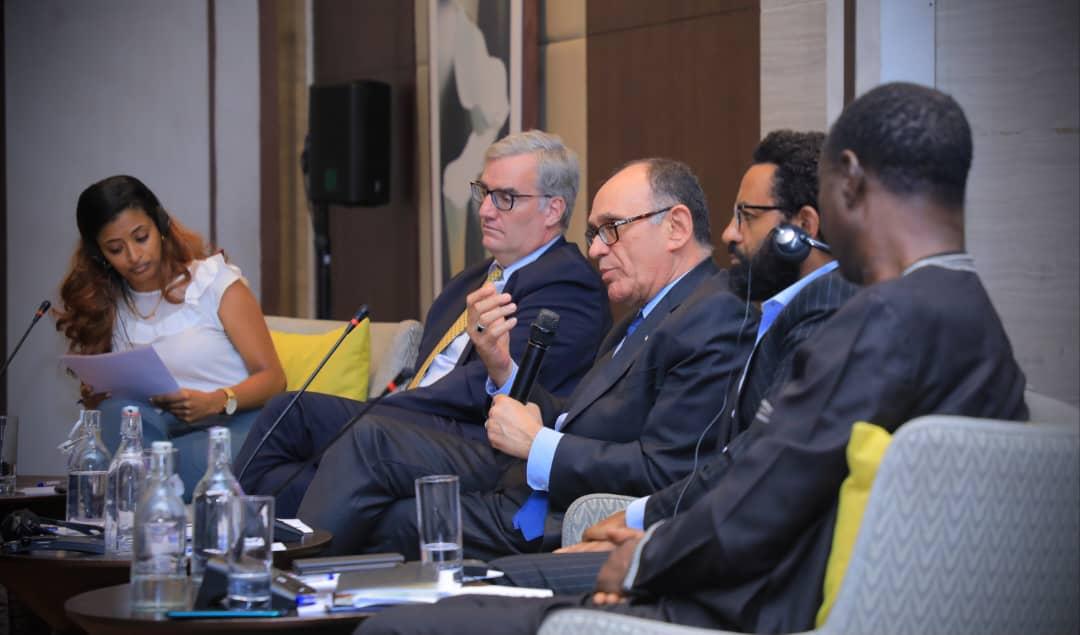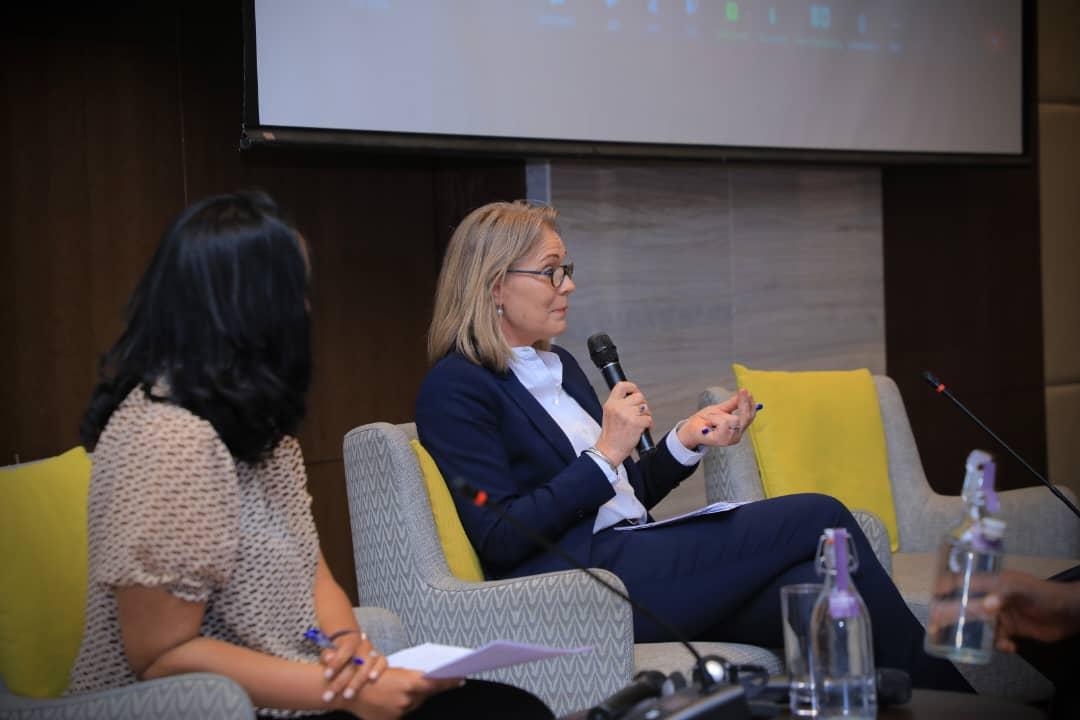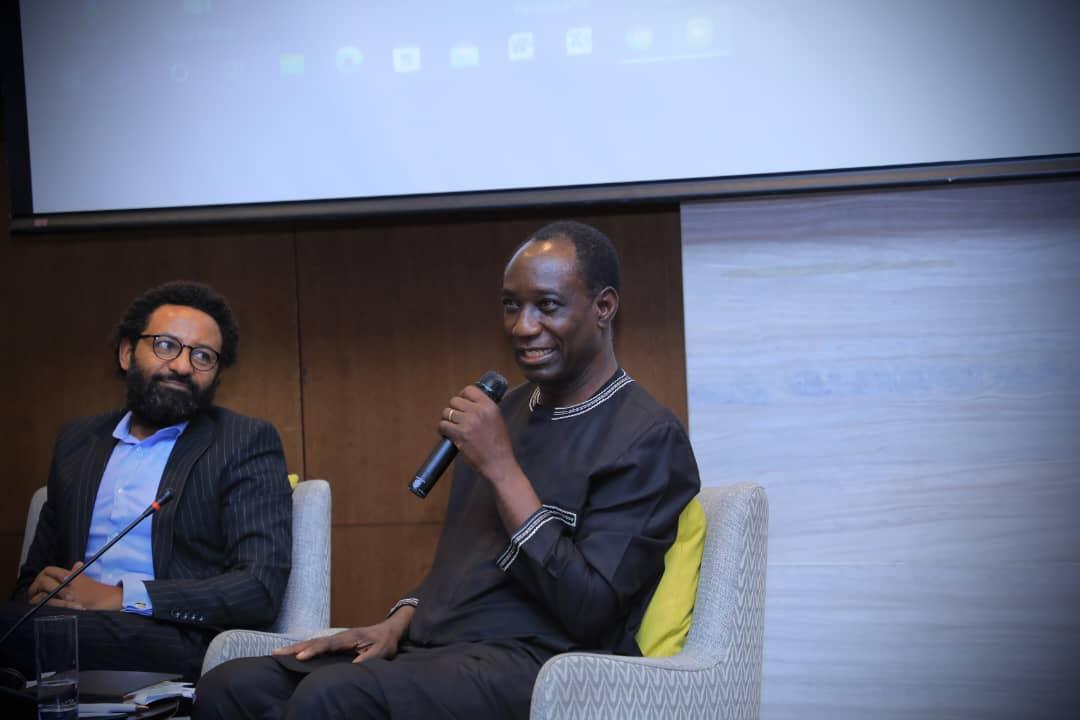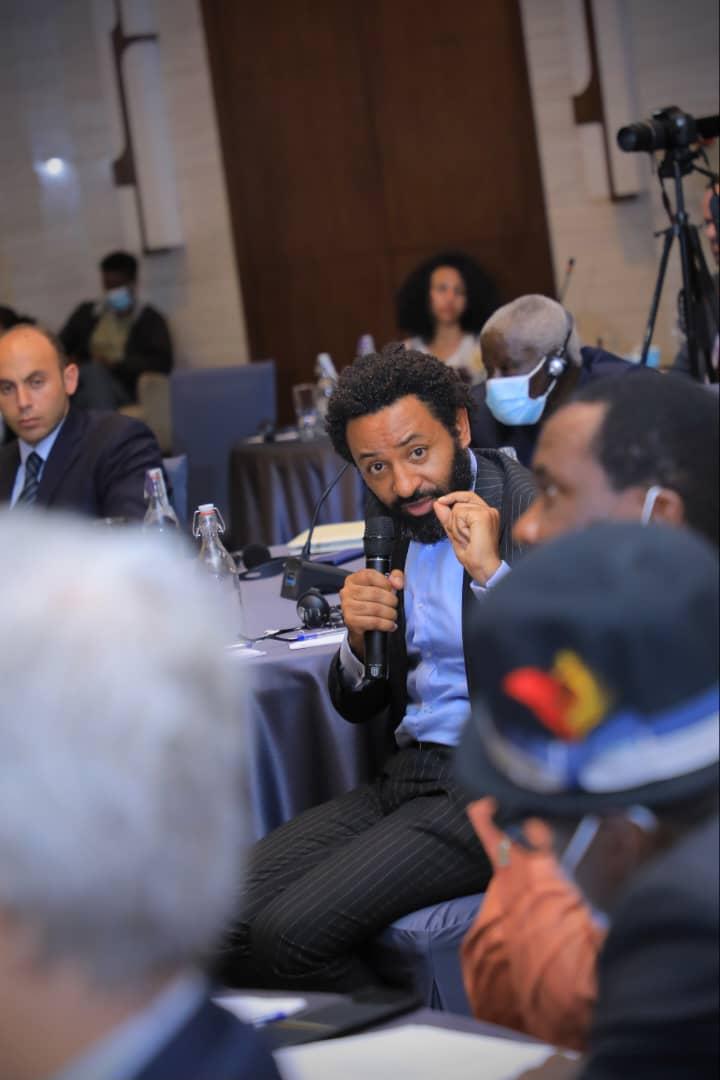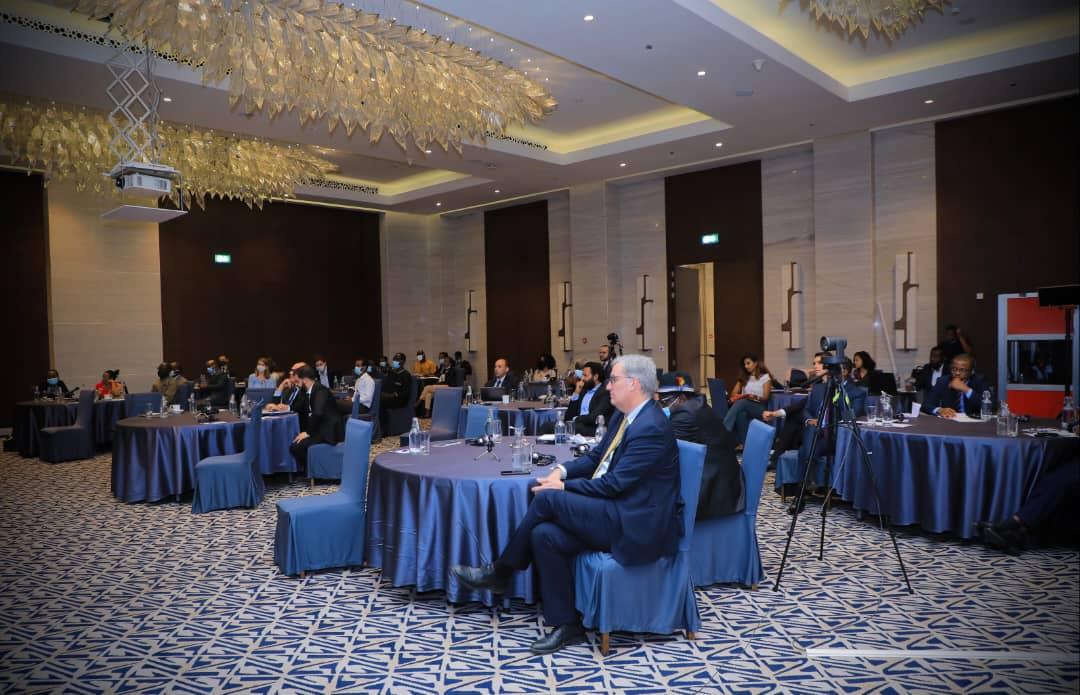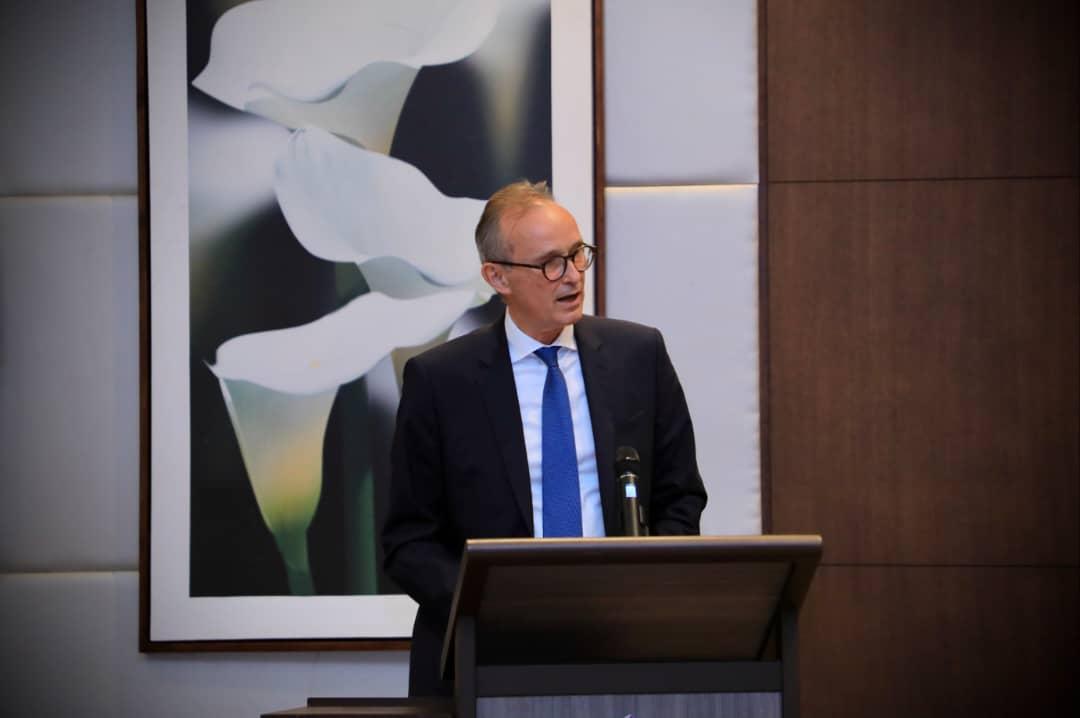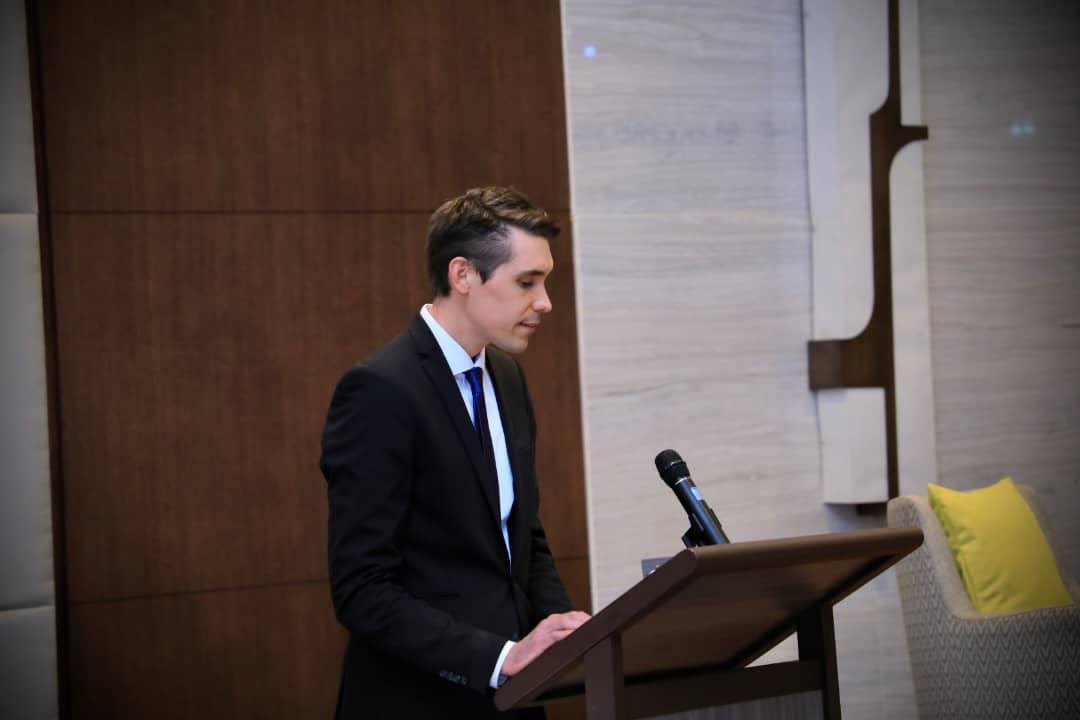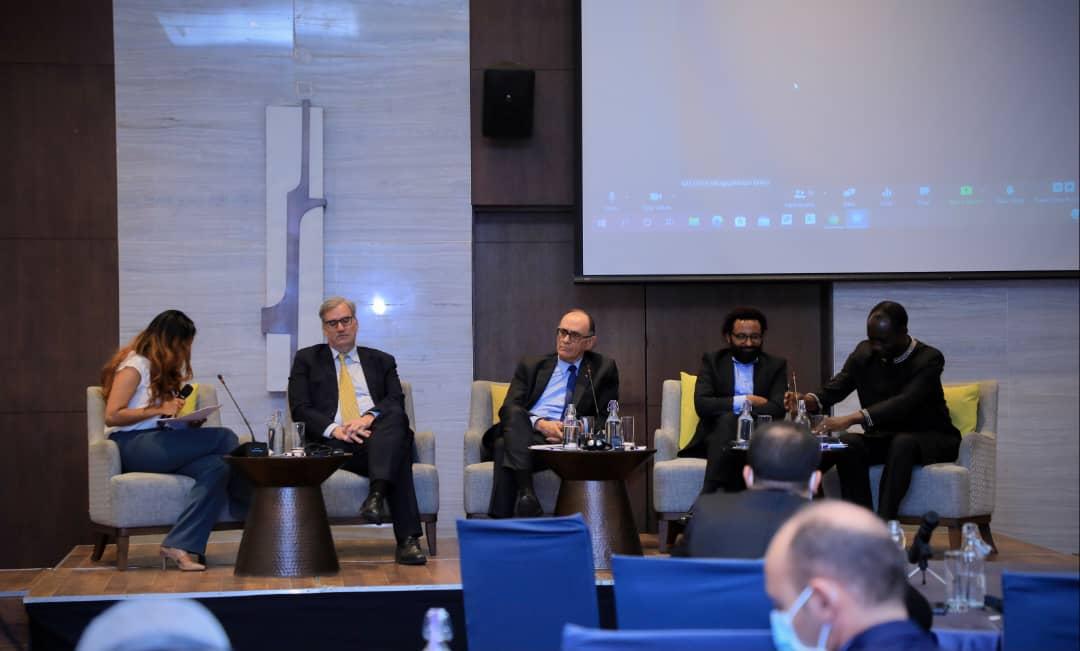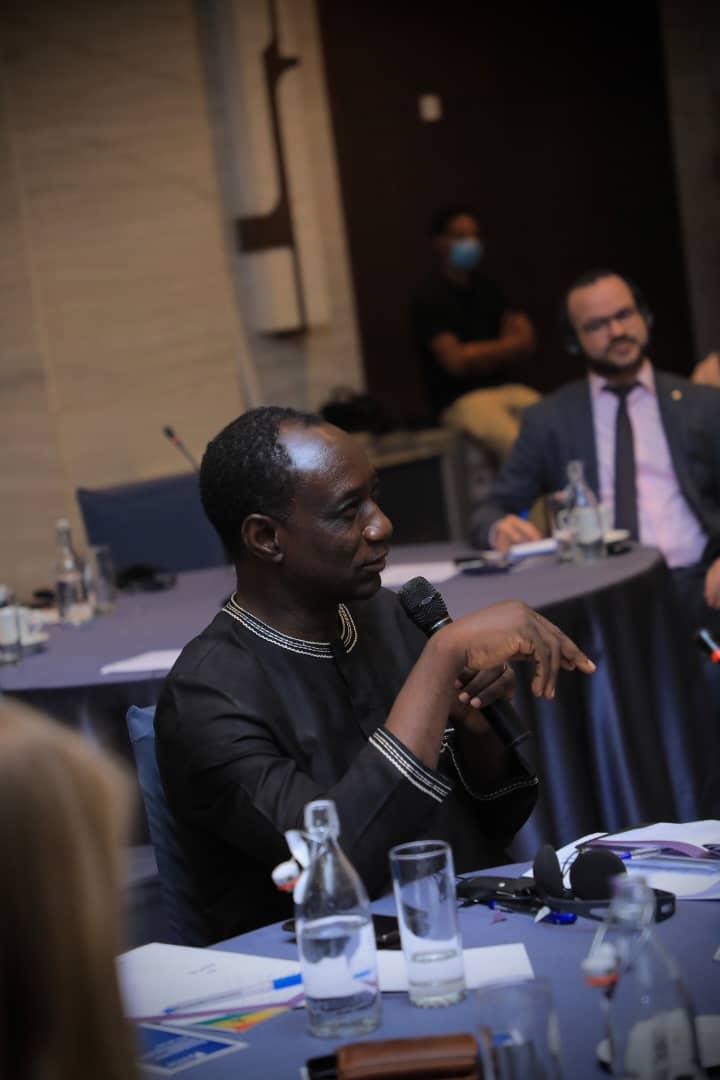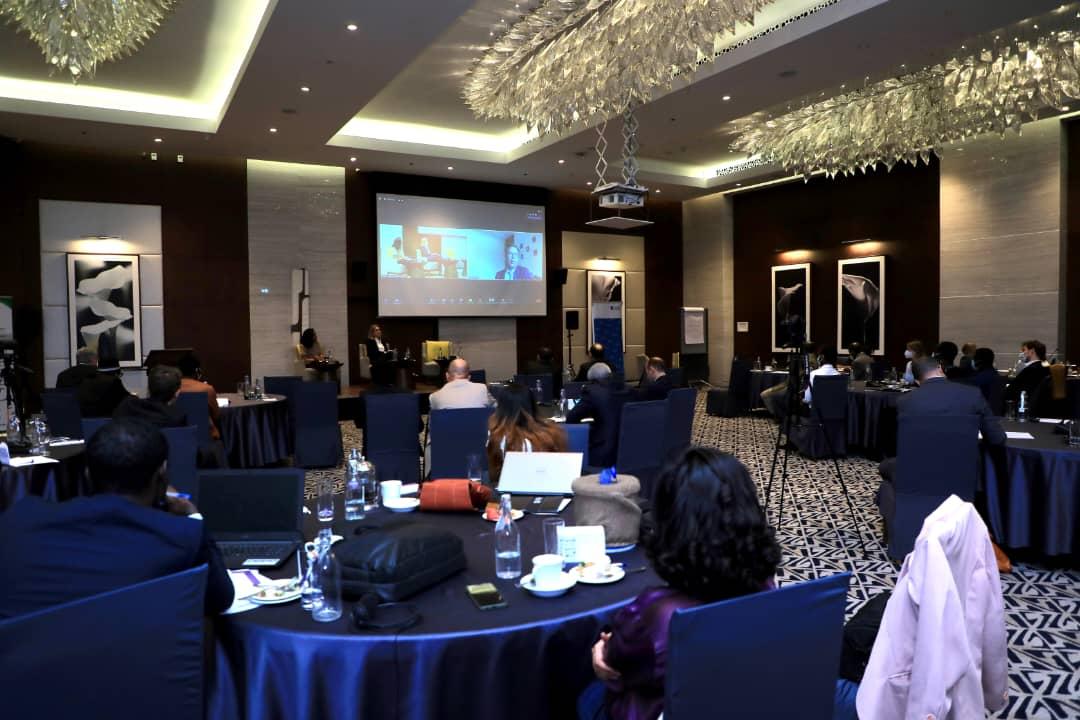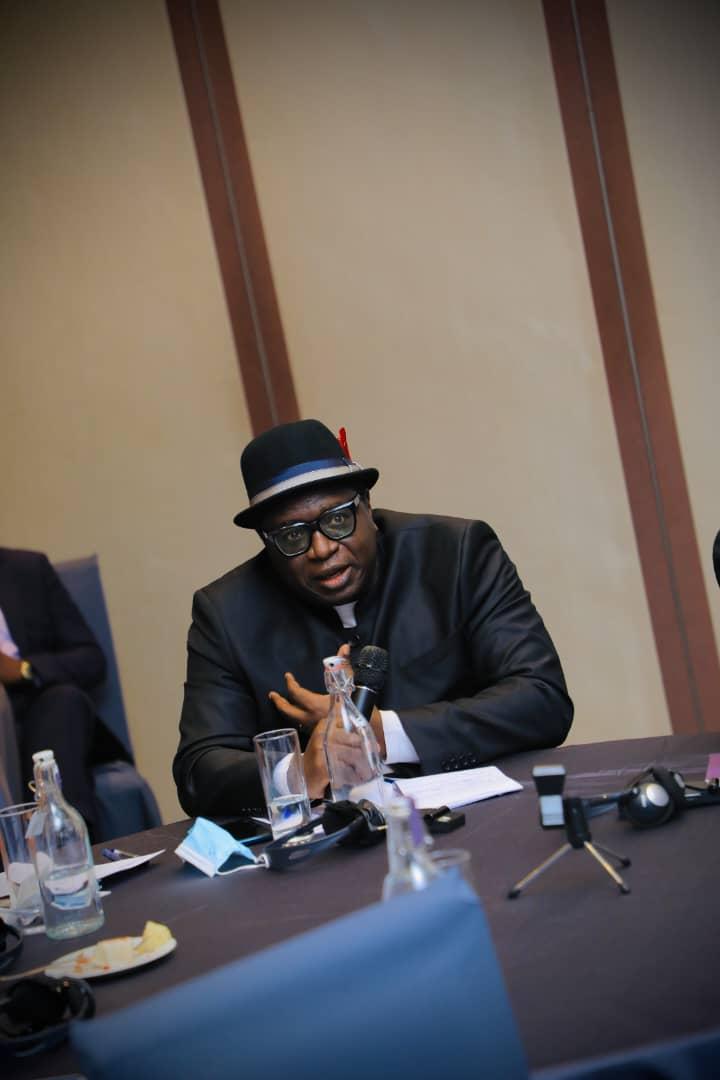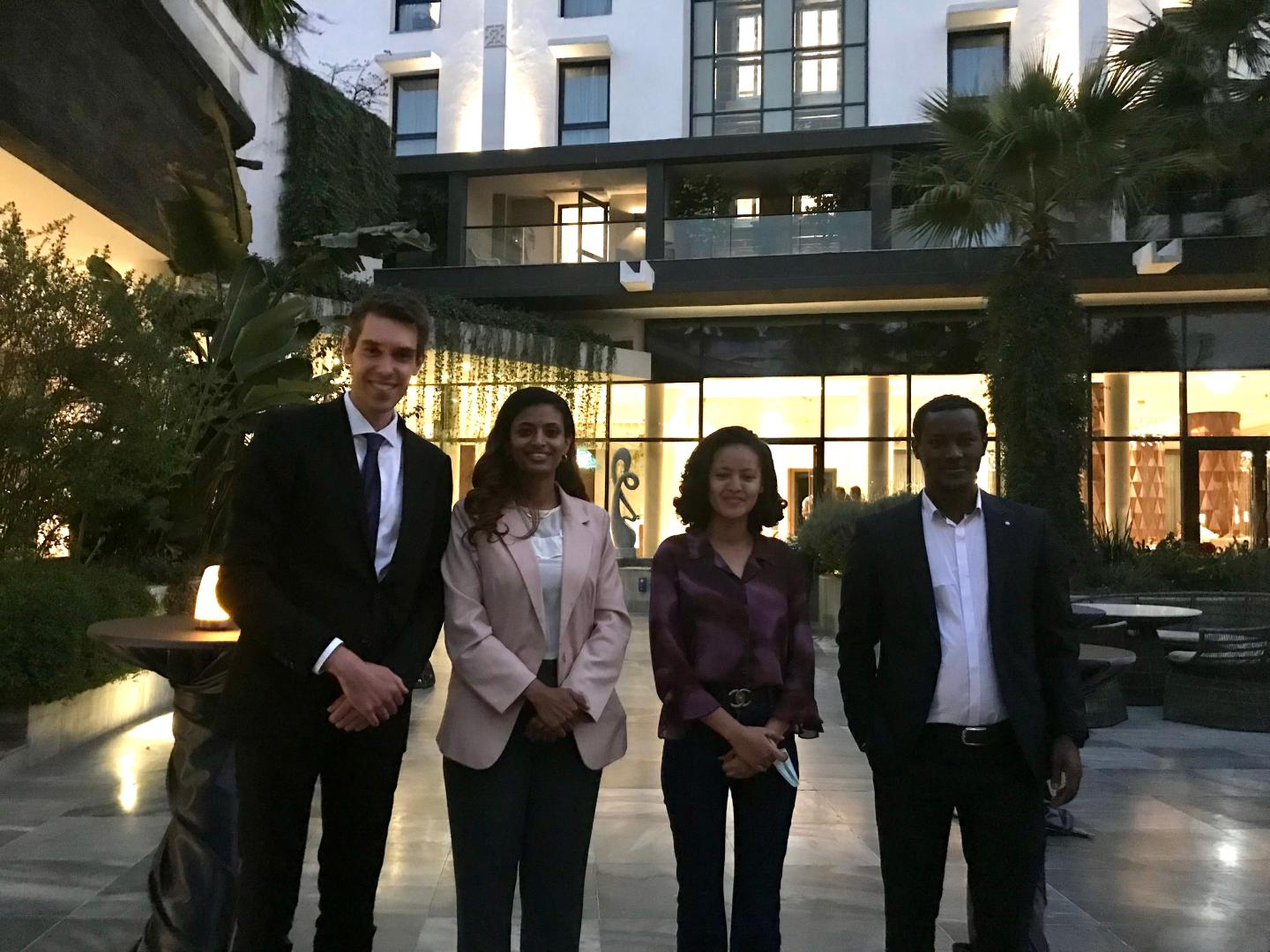With four AU member states, the African Union (AU) suspended more member states in the course of one year than ever before in its history. Guinea, Mali, Sudan, and Burkina Faso were excluded temporarily following ‘Unconstitutional Changes of Government’ (UCG) that violated the African Charter on Democracy, Elections and Governance and the AU Constitutive Act. Last year was also marked by a questionable military takeover in Chad and an attempted coup d’état in Niger. Earlier this year, another coup was thwarted in Guinea-Bissau. What does explain this concerning development? Are there similarities between the different UCG? What must be done to stop the dangerous trend of the recurring phenomenon that African Heads of State and Government had hoped to put behind them? On March 04, 2022, the KAS Office Ethiopia/AU and Amani Africa Media and Research Services organized a high-level panel discussion in Addis Ababa to discuss the pressing issue with key stakeholders of the AU Commission, AU member states and international partners. In mid-March, the AU will convene a high-level forum in Accra, Ghana to find solutions to the problem of UCG.
The importance and timeless of the event in Addis Ababa was highlighted by the presence of ten AU member states in the audience, including the Ambassadors of Cameroon, Niger, and Malawi.
In his opening remarks, the KAS Country Representative Benno Müchler welcomed the participants and drew the attention to the recurrence of UCG which had the potential to destabilize the continent at large and hamper Africa’s progress towards the achievements of the goals of the Agenda 2063. As a solution to the problem, Mr. Müchler stressed the importance of including Africa’s young generation in decision-making processes and called on all stakeholders to supporting youth much more. “All of us are facing this challenge: government, opposition, entrepreneurs, civil society, academia, and international partners,” said Mr. Müchler. More than 60 percent of the populations in most states of Sub-Saharan Africa are younger than 25 years old.
In his keynote speech, German Ambassador HE Stephan Auer used the opportunity to draw the attention to the Russian attack on Ukraine. “This war is not only one on Ukraine. It is an attack on all of us who believe in the principles of the United Nations, on international law, and in the peaceful settlement of conflicts,” said Amb. Auer. He called the Russian attack on a sovereign neighboring country “unacceptable and unjustifiable”, a war caused by Russian President Vladimir Putin, and underlined Germany’s commitment to diplomacy and seeking peaceful solutions stemming from its historic responsibility after WW II. Amb. Auer said that Germany is committed to providing assistance to all those fleeing from Ukraine irrespective of their nationality, ethnicity or religion. This would of course also cover African nationals fleeing from Ukraine. The war in Ukraine was a reflection of a global competition of systems between democracies and authoritarian regimes. “Africa is an important factor, but also an actor in this competition,” said Amb. Auer. “We have to ensure that also on this continent, crises are not exacerbated in the process.” The crises in Africa were often a reflection of bad governance or politics that do not or insufficiently address the needs and aspirations of the population. 20 years after its foundation, the AU has shown that it is willing to take on more responsibility in the area of peace and security. “There is however no time to spend on internal reforms. The crises on the continent don’t leave time, but require quick action,” said Amb. Auer. He stressed, among others, that the AU has to step up its efforts in preventive diplomacy and governance. He said, Germany is committed to support the AU as a partner in its reform agenda and has been doing so for long. The recent EU-AU Summit renewed the political partnership between both continents with the EU being the biggest troop contributor and the biggest donor to Africa.
The first of two panels took place under the theme ‘An Old-New Trend on the Continent?’ and brought together Amb. William Awinador-Kanyirige, Advisor to AUC Commissioner for Political Affairs, Peace and Security HE Bankole Adeoye, HE Salah Elhamdi, Ambassador of Algeria, Ulf Laessing, Director of the KAS Regional Programme in the Sahel, and Dr. Solomon Dersso, Founding Director of Amani Africa Media and Research Services.
Amb. William Awinador-Kanyirige stressed that the matter of UCG is a key priority for the AU, which explains the organization of a high-level forum on UCG by the Peace and Security Council (PSC) in March in Accra, Ghana. He addressed the complexity of UCG which are not always military coups d’états, but can also be caused by mercenaries, civil uprisings, sometimes manipulated by the opposition, or if a government refuses to leave power after a lost election. In this regard, Amb. Awinador-Kanyirige said that UCG are not only an African problem, but recalled the attack on the US Capitol in January 2021. Responding to a question what the AU can do to prevent UCG, he said the problem is not Early Warning. “One of the main challenges we have is that we do so well with Early Warning. Together with our partners, we get quality information on Early Warning. The trick is early response.” Here the problem was the common action and the implementation of member states and the Regional Economic Communities (RECs). Amb. Awinador-Kanyirige said he believes many African states are at risk. “And Africa recognizes it is a risk. The key thing is our leaders and also our non-state actors, do they realize that?” He said what is needed to check UCG in Africa is a “coalition of the willing and the committed” who form strategic partnerships within the countries and cross-continental, which must also include non-state actors.
Ulf Laessing gave a first-hand account of the unfolding situation in Mali after the announcement of France before the past EU-AU Summit in Brussels to withdraw its troops. Mr. Laessing highlighted that Mali is hit hard by the sanctions imposed by ECOWAS. While the intention had been to encourage a new election date, the sanctions had an opposite effect, said Mr. Laessing. “People got very angry because flights were suspended within West Africa. No bank transfers are possible anymore. Borders have been closed. It has really polarized the country.” The French withdrawal was less a problem for Malians at the moment. Mr. Laessing explained that from his point of view the different coup d’états since 2020 were symptomatic for the many different problems Mali was facing since its independence. A country known for corruption, Mali has seen many army officers promising change and security. “That’s always the issue. Once military officers arrive, they have an agenda. But then the power play within the ruling circle starts.” He recommended that German parliament should not make a rash decision to withdraw its troops. “If we move out, that would further deteriorate the security situation.” The main issue in Mali was poverty, not terrorism. Germany and other partners had provided a minimum of security for important development projects. Moving out would also cause a bigger question mark for MINUSMA as the mission depends on air surveillance provided by Germany. Mr. Laessing said the he does not believe the sentiment towards Russia in Mali would change after the Russian invasion of Ukraine: “There is an existing very strong anti-French sentiment which leads to a pro-Russian sentiment.”
Algerian Ambassador Salah ElHamdi expressed Algeria’s deep concern about the situation in Mali as both countries share a porous border of more than 1,000 km. “Stability, peace, and security in Algeria depend very much on the situation in Mali and in the entire sub-region,” said Amb. ElHamdi. He said it was the destabilization of Libya which had provoked instability in the entire region. Algeria was committed to bring back peace and security to Mali through the process of Algiers, as the situation in Mali also affected the entire ECOWAS region. Referring to the other coups d’état the region had seen over the last year, he said: “We believe it is important to reinforce the means and mechanisms of the AU and its member states to end this situation once and for all.” He stressed that Africa possessed important instruments such as the African Peer Review Mechanism (APRM), but said most African states are still young: “Psychologically, we are jealous of our sovereignty and refuse anything that could be considered as interference.” He gave the example of Burkina Faso where one could await the UCG, but member states were paralyzed and did not act.
Dr. Solomon Dersso pointed to the fact that many of the recent UCG in Africa stem from electoral and constitutional disputes such as the extension of presidential term limits, as well as sometimes from the pressure terrorism puts on the military as in the case of Burkina Faso. “It is the specificities that we need to take into account while we are cognizant of the fact that the governance issues are the ones that connect all of them,” said Dr. Dersso. He said that responding by suspending member states, does no longer seem to be effective. A recent research report by Amani Africa states that “while the AU has developed a relatively sophisticated framework for enforcing the norm on UCG, it has not provided for similar mechanisms of sanctioning serious democratic and human rights breaches, which create the conditions for the occurrence of UCG.” Dr. Dersso discussed the sensitive question of “legitimate” military coups that would supposedly lead to a more inclusive and democratic system of governance. “The data shows us that in most cases it doesn’t lead to any better outcome than what you had previously.” He warned of perceiving military as positive political stakeholders. “Politics is an arena of dispute. Imagine mixing guns in an arena of disputes. Obviously guns are going to dictate what is going to happen.”
The second panel under the theme ‘Stopping the Trend. Outside Perspectives’ brought together Ambassador Birgitte Markussen, Head of the EU Delegation to the AU and Oliver Hoehne, Deputy Swiss Ambassador.
Amb. Markussen highlighted that the recent UCG in Africa had been among the main concerns of African Heads and States at the recent 6th EU-AU Summit in Brussels. She said that peace, security, and governance were at the heart of the new engagement between the EU and AU. In this respect, Amb. Markussen said that one of the questions for the future would be how the EU can work more directly with African defense forces and mentioned the example of possibly supporting Rwandan military operations in the crisis in Mozambique. On the question of how to stop the dangerous trend, she lauded the African Charter on Democracy, Elections and Governance which was more ambitious than the UN Charta. “The African Charter is in a way a role model that we should look at in terms of the standards.” Amb. Markussen underlined the important effort of the AU to see governance and peace and security together. She said that good governance was at the heart of explaining UCG and one of the priorities for her as a partner. “If we see these unconstitutional changes, if we dig deep down, and if you look at some of the latest analysis of the Afrobarometer where you actually see that Africa, they aspire for democracy. Maybe there is not so much trust at the moment in the elections. But I think the fundamental idea to have a ‘Say’ and to be respected in a governance structure, by a government, and being seen, this is really, really important.” Amb. Markussen expressed her concern about the impact of UCG on the economic development of AU member states and of the wider continent. “We have already seen the big setback of the Covid-19,” said Amb. Markussen.
Deputy Swiss Ambassador Oliver Hoehne expressed the concern of Switzerland on the recent UCG in Africa and highlighted in this respect that Switzerland recently published its first strategy for engaging with Africa in which the area of peace, security and human rights is the first of the strategy’s four thematic priorities. Switzerland that currently co-chairs together with Germany the AU Partners Group and that runs for a non-permanent seat at the UN Security Council, would try, if elected, to strengthen the linkage of the UN Security Council and the AU Peace and Security Council. “We have a keen and key interest in the PSC,” said Dep. Amb. Hoehne. He said that he feels encouraged by the recent initiatives of the AU in peace and security. “What we sense from Commissioner Bankole and from others is that the AU is really aiming at a more joined-up approach. And for us, that makes a lot of sense.” However, depending on the evolving crisis in Ukraine, this could potentially influence the availability of resources.
